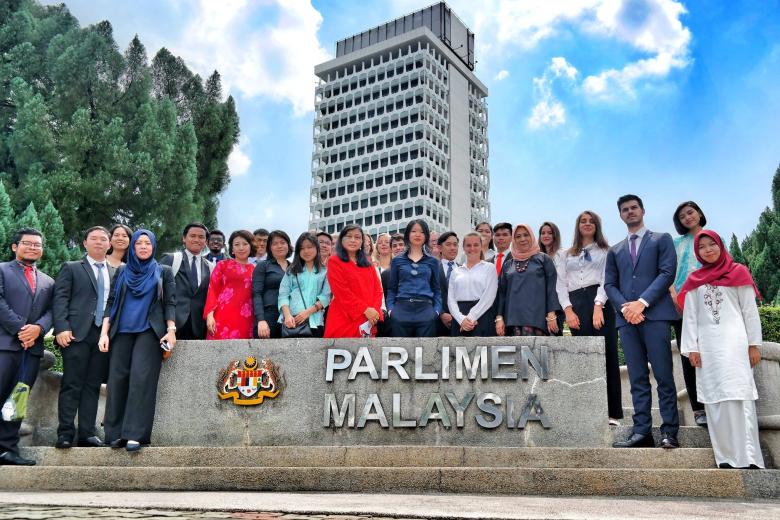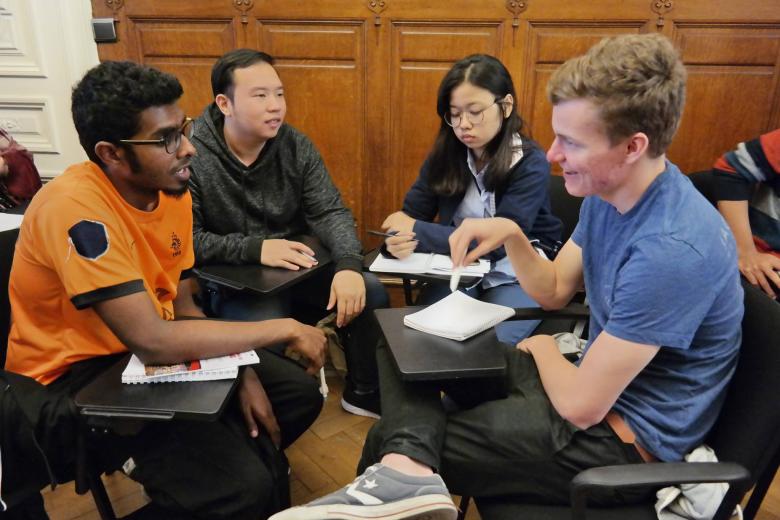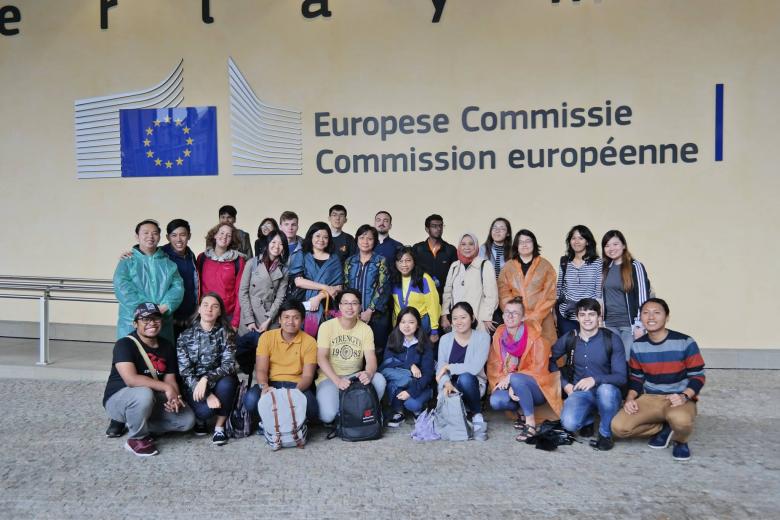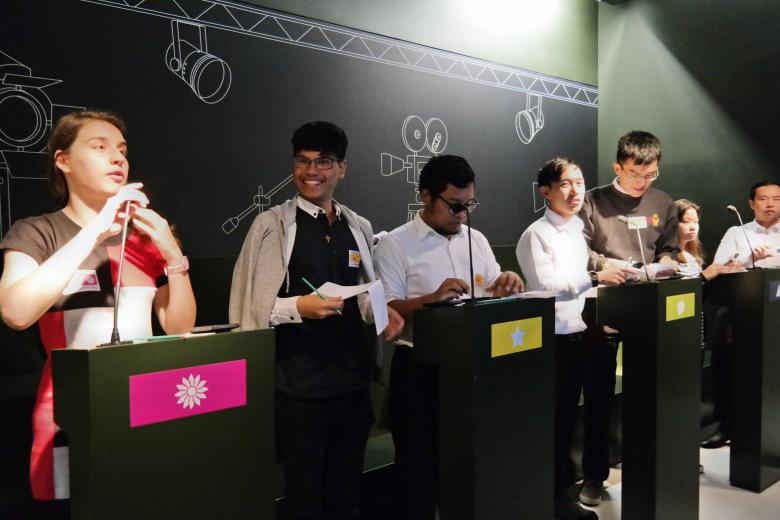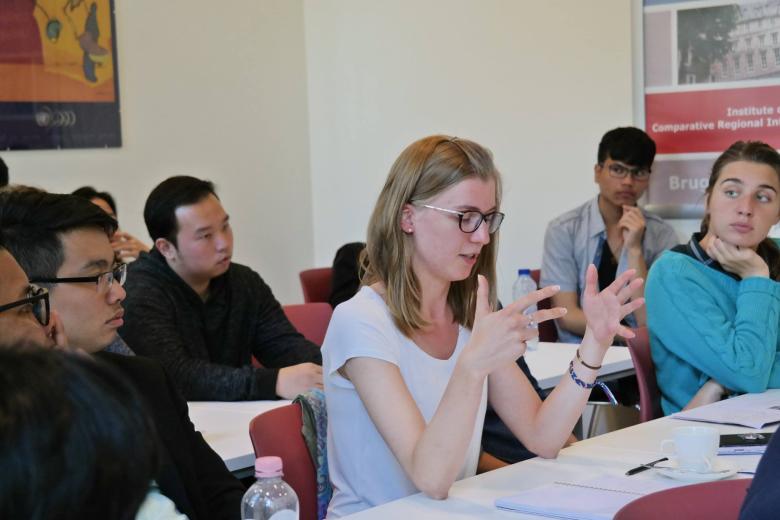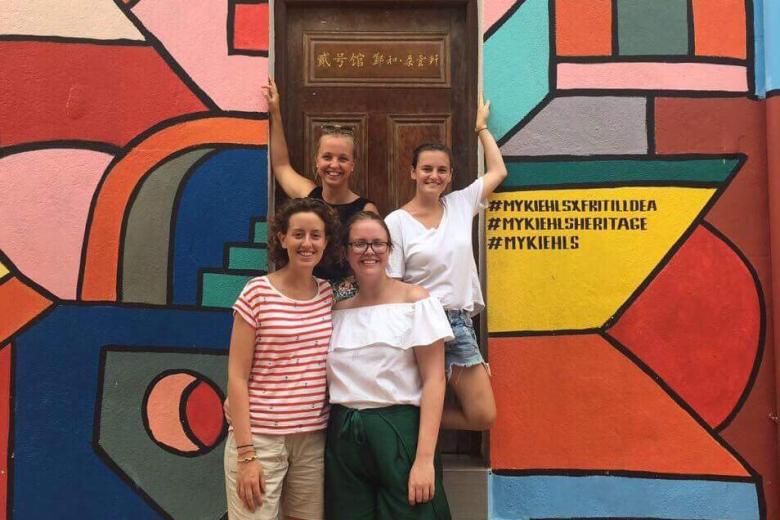UM-studenten en de 'Asia-Europe summer school'
Dit artikel is alleen beschikbaar in het Engels.
“It was amazing to see how they manage such a multi-ethnic and multi-religious society; it really gave me some new perspectives on multiculturalism.” Shelly Tsui was one of the 30 students from 10 Asian and European universities to participate in an Asia-Europe summer school full of learning, research and cultural exchange under the theme of “Cultural Pluralism in Asia and Europe”.
UM’s Centre for European Research in Maastricht (CERiM) supported this EU-funded project of which CERiM’s co-director Thomas Christiansen is one of the academic coordinators. The 2017 edition included institutional visits, excursions, and lectures on current issues that impact relations between the Association of South East Asian Nations (ASEAN) and the European Union (EU). The UM Campus Brussels hosted the final week, following the first two weeks which took place in and around Kuala Lumpur.
Malaysia is a Muslim-majority country and Islam is its state religion. At the same time, freedom of religion is enshrined in the constitution and, after a long history of colonialism and immigration, there are substantial Buddhist, Christian, and Hindu communities as well as followers of Confucianism and Taoism. The ethnic makeup of Malaysia and its historic genesis come with a unique set of challenges. The Malay majority is protected by the constitution. Whether this is discrimination or a measure to mitigate the negative effects of colonialism was a subject of discussion among participants. Shelly noticed that “the European students among us tended to see it as discrimination rather than a measure of counteracting historical injustices. It is vital to learn about history and to reflect critically on the structures that marginalise certain groups while providing opportunities for socioeconomic advancement for others.”
Learning from each other
Shelly had initially come to UM to study Arts and Culture and then European Studies on Society, Science and Technology because of the interactive and intimate nature of Problem-Based Learning. Accordingly, she relished the constructive, amicable atmosphere of the discussions: “The participants were open to learning from each other – on an academic and on a personal level. There was no complacent acceptance of the status quo; everyone was critical and eager to tackle these important issues together.”
Perspective and context matter; peeking outside the box of European academia was a valuable experience: How do Asian students learn about history, economics, geopolitics, etc.? What is emphasised and how is it interpreted? What exactly is the difference between a colony and an administrative zone of the British Empire, and what the implied value system of favouring one term over the other? Given the delicate nature of these issues, Shelly was impressed by the tact, diplomacy and social skills of this diverse group: “There was an awareness that certain questions might come across as offensive to someone who lives a different reality than your average European student. For example, discussing the treatment of women in Muslim societies exposed a number of inaccurate but wide-spread assumptions; the Muslim students were quick to correct and add nuance to them. These countries don’t lack aspiration or understanding regarding issues such as social justice or gender equality – they might just prioritise economic development out of perceived necessity. It is never helpful to lecture anyone without recognising one’s own position of privilege or structural factors influencing the degree and direction of social development.”
She herself was born in China and had a very cosmopolitan upbringing on the island of Sint Maarten. Accordingly, she had already been used to reflecting on hybrid identities and multicultural societies: “When you are confronted with a different way of seeing things, you also learn a lot about yourself. For example, ethnicity has a different significance – politically and culturally – for my Singaporean and Malaysian classmates than it does for me. I introduce myself as Dutch-Caribbean rather than Chinese because I was raised in an environment where national identity was emphasised to be inherently multi-ethnic. It was interesting to explore different paths o
A nuanced view of a very diverse region
Carola Bertone, another participant from UM, had lived in Italy before coming to Maastricht: “A school exchange to Turkey is as far east as I had got, so this was a great experience. I was surprised how diverse the ASEAN countries were but also how different they are from each other. I have a much more nuanced view of the region now.” While she enjoyed the field trips in the surrounding areas during the packed programme, she was particularly impressed with Kuala Lumpur: “It’s an incredibly well-organised megacity – especially the public transport system is something to behold.” Now in her second year of the European Studies bachelor programme, she has also gained valuable experience with regards to EU-ASEAN cooperation: “This was the first time I realised that Europe is actually relatively homogenous. I am now much more sensitive to different ways of seeing things. You need to understand those differences in order to find common ground – only that way can you get your point across without being lost in cultural translation.”
Both Shelly and Carola have really enjoyed the experience and agree that the toughest part was saying goodbye at the end.
Join the 2018 edition of the Asia-Europe summer school
Funding from the European Union’s ERASMUS+ Programme allows CERiM and its partners in South East Asia to organise summer schools also in the coming two years. The 2018 summer school will take place in July next year, with participants dividing their time between Brussels (9-13 July) and Jakarta in Indonesia (15-20 July). Details and deadlines for scholarship applications will be available on the CERiM website (https://cerim.maastrichtuniversity.nl) next spring.
